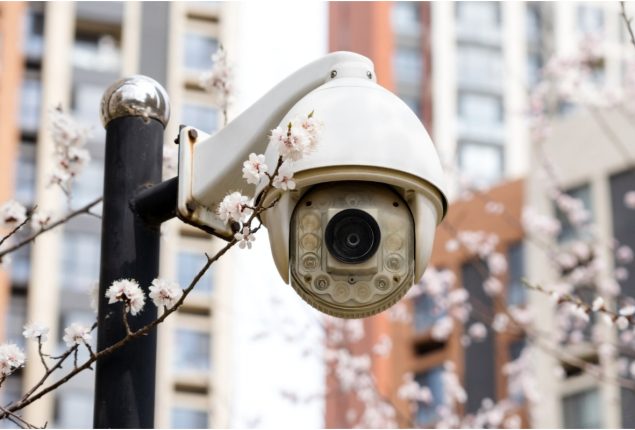China Challenges Human Rights Accusations?
China denies Xinjiang rights accusations, emphasizes counterterrorism. Beijing rejects genocide claims, supports...

China implements 24/7 monitoring cameras for government-funded projects
This month, Chinese developers who have received a minimum of 30 million yuan ($4.2 million; £3.3 million) in government funding must install monitoring equipment at their projects, according to official measures that have taken effect.
The move is part of authorities’ efforts to support China’s crisis-hit property industry. In January, the housing ministry of the country stated its intention to provide additional bailout loans to developers facing challenges related to debt and a slowdown in demand.
The National Development and Reform Commission (NDRC) announced the new surveillance rules, stating that it aims to “regulate the implementation of projects and the use of funding.
“These measures are important to strengthen investment supervision… and improve the effectiveness of government investment,” it added.
The Chinese government’s efforts to guarantee the appropriate utilization of funds supporting distressed property developers include the implementation of these rules, as stated by Ben Harburg from investment firm MSA Capital.
“Chinese developers have breached the trust of the Chinese government in the past by taking funds earmarked for completion of a project to pay off a coupon or even for personal use,” he said.
Under the measures, firms receiving at least 30 million yuan ($4.2 million; £3.3 million) of government funding must employ security devices, such as surveillance cameras, drones, or satellite equipment, to monitor projects when conditions permit.
China boasts one of the world’s most extensive surveillance networks, with an estimated half of the global surveillance cameras located in the country, totaling hundreds of millions of devices. This aligns with China’s objective to establish “the world’s biggest camera surveillance network.”
Many of these cameras utilize artificial intelligence, including facial recognition technology. Despite the extensive surveillance, David Goodman, a professor of Chinese politics at The University of Sydney, views the new rules not as “creepy,” but rather sees an element of desperation in the authorities’ efforts to oversee state-sponsored projects.
“It is likely to have some results, and some of those may even be positive towards ensuring performance and social achievement,” he added.
Mareike Ohlberg, a senior fellow at the think-tank German Marshall Fund of the United States, stated that she does not anticipate a significant backlash from a move that is theoretically aimed at monitoring the expenditure of public funds, given the widespread surveillance across the country.
This week, the severe challenges facing China’s property market came to the forefront as a Hong Kong court mandated the liquidation of Evergrande, a debt-laden developer. Evergrande, like many of its counterparts, took on billions of dollars in debt during aggressive expansion. However, in 2020, regulations were introduced to restrict the borrowing capacity of large real estate firms. This contributed to a crisis that the industry is still grappling with. The Chinese government faces a substantial dilemma as the property sector constitutes approximately a quarter of the world’s second-largest economy.
“The property sector is the bellwether for the Chinese economy. Provincial governments depended on the sector to drive employment and meet growth targets. It is critical that the Chinese government shore up this sector to diffuse some global fears,” Mr Harburg said.
Catch all the International News, Breaking News Event and Latest News Updates on The BOL News
Download The BOL News App to get the Daily News Update & Follow us on Google News.